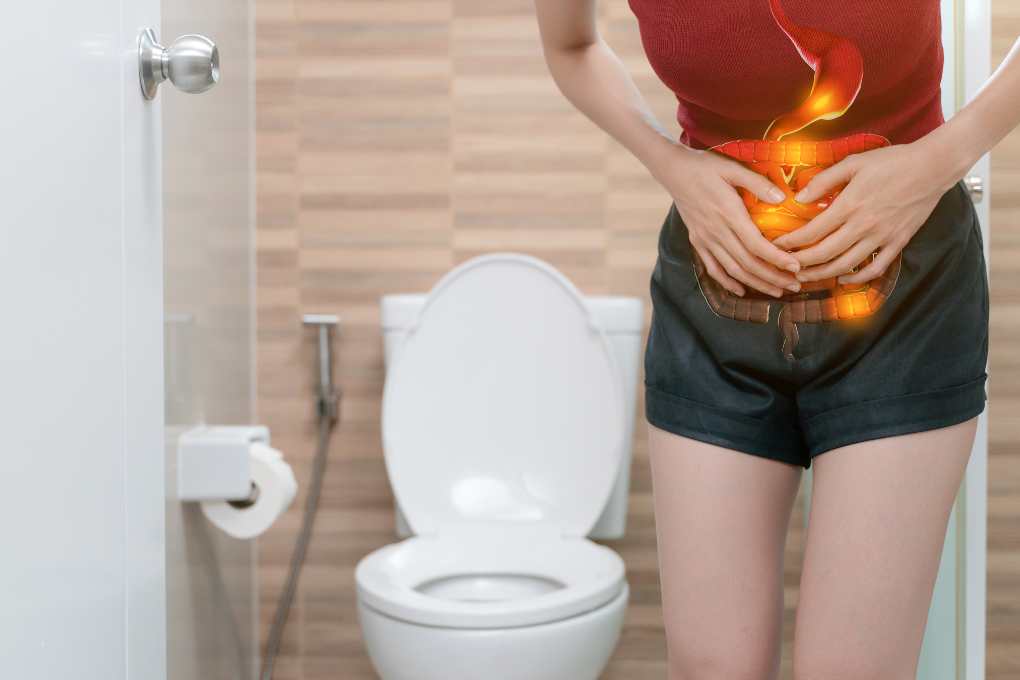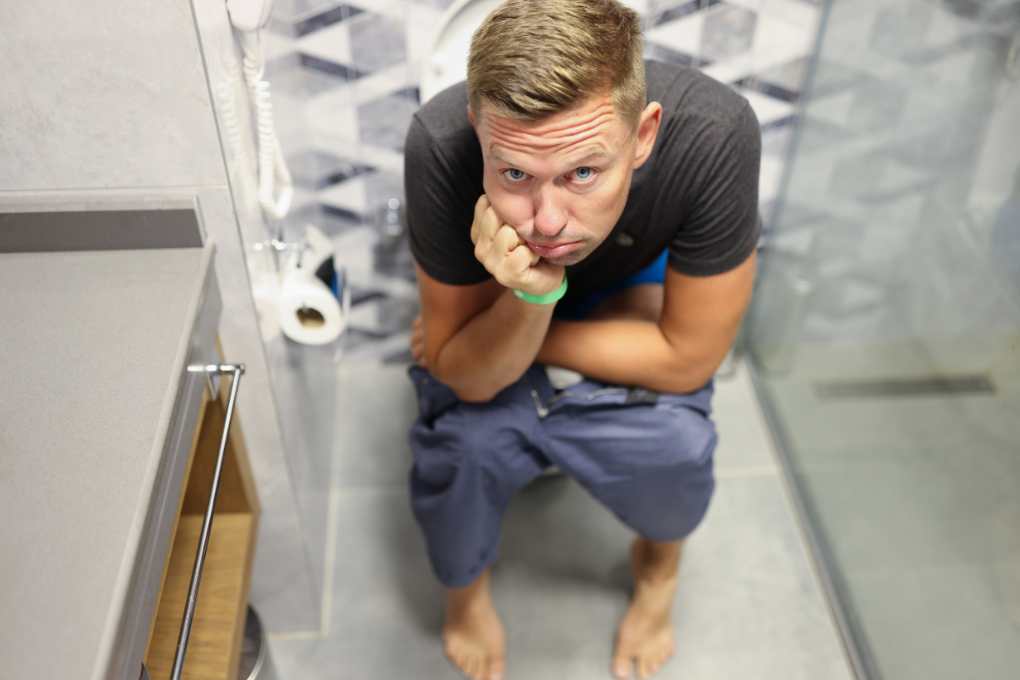
Are you tired of feeling bloated, uncomfortable, and constantly battling with constipation? You are not alone. Constipation is a common digestive issue that affects millions of people worldwide. Whether it’s due to a sedentary lifestyle, poor dietary choices, or underlying health conditions, dealing with constipation can be frustrating and even debilitating at times. But fear not! In this blog post, we will explore five simple techniques to help relieve constipation and get your bowels back on track. Say goodbye to discomfort and hello to regularity as we dive into the world of digestive health! So let’s roll up our sleeves (and loosen our belts) as we embark on this journey towards improved digestion. Get ready to take control over your gut health—starting now!
Understanding Constipation: Causes and Symptoms
Constipation is a condition characterized by infrequent bowel movements or difficulty passing stools. It occurs when the muscles in the colon are not effectively contracting, leading to slower movement of waste through the digestive system. Several factors can contribute to constipation.
One common cause of constipation is a lack of dietary fiber. When we don’t consume enough fiber-rich foods like fruits, vegetables, and whole grains, our stool becomes hard and difficult to pass. Dehydration can also play a role in constipation, as it makes it harder for stool to move smoothly through the intestines.

Inactivity or a sedentary lifestyle can also lead to sluggish digestion and constipation. Regular exercise helps stimulate intestinal contractions, promoting healthy bowel movements.
Certain medications, such as painkillers, antidepressants, and iron supplements, may have side effects that include constipation. It’s important to talk to your healthcare provider if you suspect a medication may be causing your symptoms.
Other underlying health conditions, like hormonal imbalances (such as hypothyroidism), irritable bowel syndrome (IBS), or even stress, can contribute to constipation too.
Recognizing the symptoms of constipation is crucial for effective management. These symptoms often include straining during bowel movements, feeling bloated or uncomfortable after eating, and having fewer than three bowel movements per week consistently over time.
Now that you understand some of the causes and symptoms associated with this pesky digestive issue, let’s dive into five simple techniques that will help relieve your discomfort and get things moving smoothly again!
The Importance of Regular Bowel Movements
Regular bowel movements are an essential part of maintaining good digestive health and overall well-being. While it may not be a topic that we often discuss openly, the importance of regularity cannot be overstated. When our digestion is functioning optimally, we feel lighter, more energized, and less weighed down by discomfort.

One of the key reasons why regular bowel movements are important is because they help to remove waste and toxins from our bodies. When stool lingers in the colon for too long, it can lead to the reabsorption of harmful substances back into circulation. This can have negative effects on our health and contribute to various conditions, such as bloating, gas, and even skin issues.
Additionally, regular bowel movements promote a healthy gut microbiome. The gut is home to trillions of beneficial bacteria that play a crucial role in digestion and immune function. By eliminating waste regularly, we create an environment where these friendly bacteria can thrive.
Furthermore, when we experience constipation or irregularity, it can cause discomfort and pain. It’s not just about feeling “backed up,” but also experiencing abdominal cramps or straining during bowel movements. These symptoms can greatly impact our quality of life and hinder daily activities.
In conclusion (as per instruction), ensuring regular bowel movements should be a priority for everyone seeking optimal digestive health. Stay tuned for the next sections, where we’ll explore five simple techniques you can try to relieve constipation naturally!
5 Simple Techniques to Relieve Constipation
Are you tired of dealing with the discomfort and frustration of constipation? You’re not alone. Many people suffer from occasional or chronic constipation, which can interfere with daily life and overall well-being. Fortunately, there are simple techniques that can help relieve constipation and promote regular bowel movements.
- Stay hydrated: One of the most common causes of constipation is dehydration. Make sure to drink plenty of water throughout the day to keep your digestive system functioning properly.
- Increase fiber intake: A lack of dietary fiber can contribute to constipation. Include more fruits, vegetables, whole grains, and legumes in your diet to add bulk to your stool and promote healthy digestion.
- Exercise regularly: Physical activity stimulates the muscles in your intestines, helping food move through your digestive system more efficiently. Aim for at least 30 minutes of moderate exercise each day to support better digestive health.
- Practice good bathroom habits: don’t ignore the urge to have a bowel movement when it arises; make time for regular trips to the bathroom. Additionally, try elevating your feet on a small stool while sitting on the toilet; this can help align your body for easier elimination.
- Consider natural remedies: Certain herbal teas, like peppermint or ginger tea, may have gentle laxative effects that can help alleviate constipation symptoms naturally.
By incorporating these simple techniques into your daily routine, you can take control of constipation and improve your overall digestive health without relying solely on medications or invasive treatments!
Diet Changes for Better Digestion
Diet plays a crucial role in our overall health, including digestion. Making certain changes to your diet can help relieve constipation and promote better digestive health. Here are some simple yet effective dietary adjustments you can make:
- Increase Fiber Intake: Eating fiber-rich foods helps add bulk to your stool and promotes regular bowel movements. Include more fruits, vegetables, whole grains, and legumes in your daily meals.
- Stay Hydrated: Drinking an adequate amount of water is essential for softening the stool and preventing dehydration, which can worsen constipation. Aim for at least eight glasses of water per day.
- Limit Processed Foods: Processed foods often lack essential nutrients and fiber while containing high levels of salt, sugar, and unhealthy fats. Opt for fresh, whole foods instead.
- Incorporate Probiotics: Probiotics promote a healthy gut by balancing the beneficial bacteria in your digestive system. Yogurt with live cultures or fermented foods like sauerkraut are excellent sources of probiotics.
- Avoid trigger foods: Certain foods may exacerbate constipation symptoms in individuals prone to this condition. Common culprits include dairy products, fried or greasy foods, caffeine, alcohol, and refined sugars.
Remember that everyone’s body is different; what works for one person may not work for another when it comes to relieving constipation through dietary changes.
Exercises for Improved Digestive Health
Regular physical activity is not only beneficial for maintaining a healthy weight and cardiovascular health, but it can also help alleviate constipation. Engaging in regular exercises stimulates the muscles in your abdomen, which helps to improve digestion and relieve constipation.

One effective exercise for promoting better digestive health is walking. It’s a simple yet powerful activity that gets your body moving and encourages bowel movements. Aim to take brisk walks for at least 30 minutes daily to reap the benefits.
Another great exercise option is yoga. Certain yoga poses, like the Wind-Relieving Pose (Pavanamuktasana) or the Cat-Cow Pose (Marjaryasana-Bitilasana), can help stimulate your digestive system by stretching and massaging the abdominal area.
Incorporating strength training exercises into your routine can also aid in relieving constipation. Exercises like squats, lunges, and planks engage multiple muscle groups, including those involved in digestion.
Don’t forget about aerobic exercises! Activities such as jogging, cycling, or swimming increase blood flow to all parts of your body, including the gastrointestinal tract. This increased blood circulation helps promote healthy digestion and regular bowel movements.
Remember to consult a healthcare professional before starting any new exercise regimen if you have underlying health conditions or concerns about incorporating physical activity into your routine.
Herbal Remedies and Supplements
When it comes to finding natural solutions for constipation, herbal remedies, and supplements can be incredibly beneficial. These alternatives offer a gentle approach to relieving constipation without the harsh side effects often associated with over-the-counter medications.

One popular herbal remedy for constipation is aloe vera. Aloe vera juice has been used for centuries as a natural laxative due to its ability to promote bowel movements and soothe digestive discomfort. Another herb worth considering is senna leaf, which contains compounds that stimulate the muscles in the intestines, helping to move stool more efficiently.
Probiotics are another supplement that can play a key role in promoting healthy digestion and regular bowel movements. These “good” bacteria help maintain balance in your gut, supporting proper digestion and reducing the risk of constipation.
Psyllium husk is yet another herbal remedy commonly used to relieve constipation. This fiber-rich supplement absorbs water in the intestines, adding bulk to the stool and making it easier to pass.
While these herbal remedies and supplements can provide relief from occasional bouts of constipation, it’s important not to rely on them long-term without consulting a healthcare professional first. It’s always best to address any underlying causes of chronic or severe constipation rather than relying solely on quick fixes.
Remember, everyone’s body is unique, so what works for one person may not work for another. It may require some trial and error when experimenting with different herbs or supplements until you find what works best for you.
Incorporating these natural remedies into your daily routine alongside diet changes and exercise can greatly improve your overall digestive health, leading to more regular bowel movements and less reliance on medication.
Conclusion: Don’t Let Constipation Control Your Life
Living with constipation can be frustrating and uncomfortable, but there are simple techniques you can try to relieve this common digestive issue. By understanding the causes and symptoms of constipation, as well as the importance of regular bowel movements, you can take control of your digestive health.
Making diet changes is one effective way to improve digestion and alleviate constipation. Increasing fiber intake, staying hydrated, and incorporating probiotic-rich foods into your meals can help regulate bowel movements. It’s important to listen to your body and pay attention to how different foods affect your digestion.

Exercise also plays a crucial role in promoting healthy digestion. Engaging in physical activity stimulates the muscles in your intestines, helping food move through more efficiently. Simple exercises like walking or yoga can make a significant difference in relieving constipation.
If dietary changes and exercise alone don’t provide enough relief, herbal remedies and supplements may be worth considering. Natural options such as psyllium husk, magnesium citrate, or herbal teas like peppermint or ginger have shown promise in easing constipation symptoms for many individuals.
In conclusion (without using “in conclusion”), it’s essential not to let constipation control your life. By implementing these five simple techniques—making diet changes for better digestion, exercising regularly for improved digestive health, and exploring herbal remedies if needed—you can find relief from this bothersome condition.
Remember that everyone’s body is unique; what works for one person may not work for another. It might take some trial and error to discover which methods are most effective for you. If chronic constipation persists despite trying various approaches at home or if it worsens over time, it’s always wise to consult a healthcare professional who specializes in gastrointestinal disorders.
While constipation can lead to sluggishness, jumping rope can be a powerful antidote! This high-intensity exercise gets your heart pumping and your whole body moving, stimulating digestion and potentially easing constipation. Not only that, it builds bone density, burns calories, and boosts overall fitness—all great benefits for women’s health.

